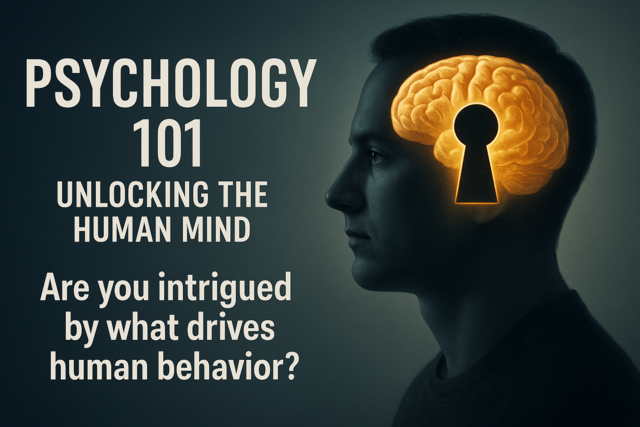When it comes to personality development, people have traits that represent the type of person they are. Traits are distinguishing qualities in one's character. They are inherited characteristics that one has. In this lesson, we are going to look at some of the basic and common personality traits. We also will look at the big five factors in personality.
Basic personality traits include:
alertness appreciation care charm
commitment compassion confidence cooperation
daring courage directness diversity
education encouragement flexibility freedom
harmony hopefulness integrity liberty
When someone's personality includes these values, it not only benefits those close to them, but it benefits society as well. Most people believe that values are an important part of personality development.
All About Beliefs
Beliefs are another aspect to personality and demonstrate those things that a person holds to be true. As you know, people have different views and beliefs, so not everyone will have this in common. Beliefs range from climate change to religion and include everything in between. If you believe certain things, you may live your life accordingly, which helps to make up your personality.
Just how are beliefs formed? According to psychologists, there are several ways, including what people are taught as children. As children, we internalize all the beliefs that are held in our families; and when we become adults, we usually have the same or similar ones, especially in regard to things like religion and politics. Additionally, some people take on the beliefs of a good leader, or someone that has gotten them to take notice of something and make a change.
Other things that can affect beliefs include peers, advertising, and trauma. However, beliefs usually are very strongly held and people do not often sway from them.
The Impact of Interactions and Experiences
There is no doubt that the interactions and experiences that one has can and often will alter his or her personality development. There are situations that we may go through that will have a profound impact on our beliefs and the way we think. For example, consider a person who has always been religious and then questions God's existence when a close friend or relative unexpectedly dies. There are many examples like this that demonstrate how interactions and experiences can change or bring about an impact to your personality.
Environmental Influences on Personality
The Big Five Personality Traits
The Big Five factors include the following:
Openness: This includes being curious versus cautious and conservative. It also includes a curiousity about and appreciation for adventure.
Conscientiousness: This includes being organized and efficient versus easygoing and careless. Conscientious people would demonstrate self-discipline and plan out things, rather than being spontaneous.
Extroversion: This area focuses on how outgoing or reserved and withdrawn someone is, as well whether she or he is shy. It also includes people displaying positive emotions, energy, etc.
Agreeableness: This trait is about how compassionate and friendly someone is, as well as how competitive and outspoken the person may be. It also includes how well people cooperate with others.
Neuroticism: Sensitivity, confidence, and security play important roles in the neuroticism trait, which includes how people experience such things as depression, anger, unpleasant situations, etc.
As you can see, there are many traits and factors that go into personality development. You may even be able to identify some of these traits in your own personality, as well as in those around you. We will begin to look at moral development and discuss how it is related to personality.
Morality Defined
Similar to ethics, morals are practices and teachings that help to define the right kind of modes of conduct. They are those things that help determine what we believe is right or wrong in society.
Morality often has a code of conduct that aims to guide people in the right and wrong ways to act. For example, churches have their own set of moral codes and teach their followers to adhere to them.
Immorality, something that is lacking morality, varies by the individual and can be subjective, although for the most part we as a society tend to agree upon most of the things we consider to be moral or immoral. Some topics may include sex before marriage, homosexuality, adultery, stealing, etc.
Not all morals are great in and of themselves. Often, particular groups may have a moral code that actually harms others or society as a whole. For example, the Nazi code may have been something its followers believed in, but that does not mean that everyone agreed with the morals set forth in it. What we find morally acceptable in America may be the complete opposite of what is accepted in Africa, for example. So a lot of moral decision-making comes from our society, culture, and what we are taught as children.
Morality and Personality
Now that you have an idea of what morality is, it is probably much easier to see how it would affect someone's personality. It is often the basis and foundation of a person's beliefs about many things. If someone is brought up in a particular religion, for example, that person is more likely going to hold many of those views regarding what is moral and not. It will have an impact on her or his personality development. Additionally, different cultures have different morals, again adding to the differences in personality.
Here are some additional examples of moral issues. Notice how, as you read over the list, you probably already have a set moral stance regarding what is right or wrong.
murder gambling abortion adultery
tattoos lying violence stealing
cheating using illegal drugs envy pornography
Kohlberg's Stages of Moral Development
Within the field of developmental psychology, a man named Lawrence Kohlberg conducted research on moral development that was later referred to as Kohlberg's Stages of Moral Development. He proposed a theory of the stages that moral development goes through, starting from childhood and progressing to adulthood.
Here's a look at his six stages, which he broke up into three levels:
LEVEL ONE (Pre-conventional)
- Obedience and Punishment Orientation. This is the stage in which young children realize there is a set of rules that they are expected to follow.
- Individualism and Exchange. This is the stage that children wonder what is in it for them. They are concerned with self-interests.
LEVEL TWO (Conventional Morality)
- Interpersonal Accord and Conformity. At this stage of moral development, people are concerned with social norms and the attitudes toward them being good or bad.
- Maintaining Social Order. At this stage, people are concerned with following social order and law.
LEVEL THREE (Post-conventional Morality)
- Social Contract and Individual Rights. This is the stage in which people want to participate in having a good society and they try to figure out what makes for a good society.
- Universal Ethical Principles. In this stage, people have an idea of their ethical principles and will actively use them to help create a better society.
As you can see, people go through a moral developmental process, just as they experience other processes as they grow. These issues affect who we become and what our personalities are like. We will begin to look at identifying what your personality type is and how it is used.
Personality Type Basics
Using personality types is just a simple way of trying to classify people's personalities into various areas. Personality types are determined by different personality traits each person has.
You have already learned about some personality types, such as introverted and extroverted. Other personality type theories includeType A and Type B personalities. Type A personalities are those people who are described as being highly competitive, ambitious, aggressive, impatient, and having a difficult time relaxing. They are also known for always rushing, which is something that the Type B personality does not particularly like. Type B personalities are usually easygoing, patient, and more laid back.
Myers-Briggs Type Indicator (MBTI)
One of the more popular ways for people to learn about their personality type, as well as others, is to use the Myers-Briggs Type Indicator (MBTI). It involves taking a psychometric questionnaire that asks a range of questions. Once you are finished, the results will provide a personality type.
Interestingly, the MBTI was created by Katharine Cook Briggs and Isabel Briggs Myers, who was her daughter. The original use of the quiz was to help the thousands of women who entered the workforce during World War II. The women received questionnaires so they could better find a fit with a job position. Later, in 1962, the test was published and made available to others.
The results can be beneficial to learning more about your personality and preferences. It can even be helpful in providing insight to interact with and work with others and find career satisfaction. Questions will help determine if you prefer extraversion (E) or introversion (I), sensing (S) or intuition (I), thinking (T) or feeling (F), and judging (J) or perceiving (P). Using the quiz will result in one of 16 types. The results are delineated by the letters corresponding with the traits.
Once you have the results from the personality test, you can perform a Google search on the type (e.g., INFJ, ISTJ, etc.) and find additional in-depth information on that specific personality type.
Keirsey Temperament Sorter
Another popular personality test that is widely used is the Keirsey Temperament Sorter (KTS). The KTS is similar to the MBTI and used in much the same way. Developed by psychologist David Keirsey, the results focus on 16 personality types, as does the MBTI. The types that it focuses on are called artisans, guardians, idealists, rationals, etc.
As with the MBTI, once you take the questionnaire for the KTS, you are given a result from your submitted answers. That result will offer information that is believed to be reflective of that personality type. This information can be handy in choosing a career, a mate, how to best get along with others, and even in working with other people.
The Keirsey site offers the questionnaire for free. You will find the quiz at the "Take the KTS-II" link. After taking the quiz, the site will offer additional add-on products that you can purchase, but you do not have to buy anything to get the results of your quiz. The free mini-report, at the bottom of the list, provides your temperament sorter results and information about that specific temperament.
Using Personality Tests
Helpful Tools
Want to take a class at Harvard University that discusses morals? How about if it is free? Harvard University offers one of its most popular courses, called "Justice," for free and it is open to the public online. You get the opportunity to sit in on a class at Harvard for free and learn about moral issues. Each "episode" focuses on a new topic and the episodes span the whole course of the class in a semester. By the time you finish all 12 episodes, you will have listened to issues related to murder, freedom, lying, affirmative action, and even same-sex marriage.






























